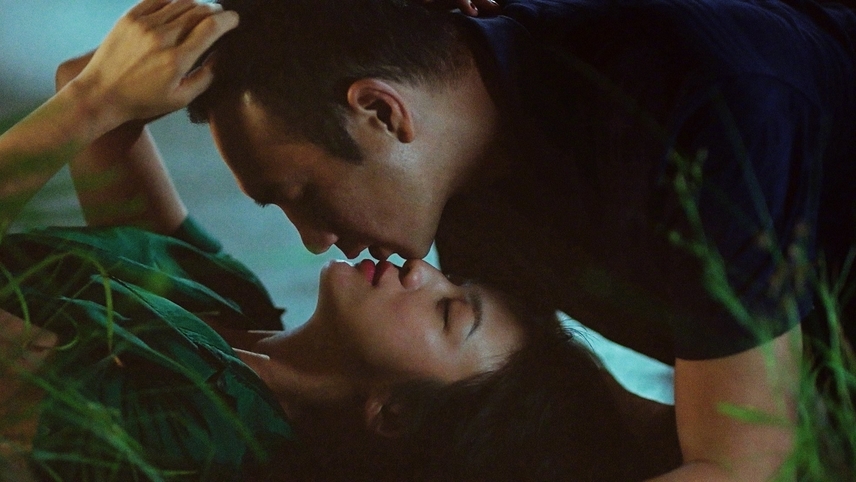
If Bi Gan’s Kaili Blues was a direct descendent of Andrei Tarkovsky’s Stalker, his new film Long Day’s Journey Into Night hews far closer to Solaris (though it does references both films). Both films exist in a state of constant dreaminess, with Blues leaning into poetry and Night dwelling in between fact and fiction. But just as Tarkovsky blurred fantasy and reality, so does Bi, using form to navigate his ideas.
Long Day’s Journey Into Night is a film that’s gorgeous in form and precise in emotional pitch. It presents us with Luo Hongwu (Huang Jue) as narrator, searching for Wan Qiwen (Tang Wei), the woman he once loved, upon revisiting his old hometown of Kaili. Bi takes us between what we assume are memories of their romance and present day, but as the film constantly reminds us, these are stories we are being told. As one character notes, “The difference between film and memory is that films are always false. But memories mix truth and lies.”
In this quote, Bi hammers home his point: stories, whether oral or written, cannot exist in any concrete form; they’re always in some state between fact and fiction. What we see and hear onscreen, or what characters themselves see and hear in their lives, are simply stories, ones we can choose to believe, or not. In a breathtaking final shot that is prompted by a character literally sitting in a cinema, at which point the film shifts to 3D, we fully delve into fantasy, into memory, into everything that film can and should be.
Focusing on the technical marvel that is the long take would be a waste, as brilliant as it is. Where Kaili Blues’ 41-minute shot felt almost dangerous in its scale and execution, Long Day’s Journey Into Night’s 59-minute closing shot feels meticulously drawn out and planned. The camera stalks its characters slowly and lovingly, documenting relationships between characters so that they, and we, may find comfort in their fulfilled journeys. But the success of both film’s grand scenes only works because of their accompanying parts: Blues with its heartbreaking cut to a close-up of a man reminiscing, and Night in the hour and change it takes setting up Luo’s dedication to the rediscovering, or reinterpreting, his own past and that of those around him.
So much of Bi’s setup is in quiet discussions and musings, in train rides and tunnels, in two people sharing their pasts without physical interaction. It’s a slow and atmospheric journey, occasionally enhanced by Lim Giong and Chih-Yuan Hsu’s subtle and moody score. But sometimes we simply watch people exist in silence, full of longing for a time or a person long gone. The intimacy with which everything in the film, from a kiss between lovers to a game of pool between strangers, is entrancing.
Long Day’s Journey Into Night is less of a labyrinthine work of narrative threads than one might expect from its many conflicting stories, though. It’s more a garden of sentiments that the viewer can stroll through, individual characters and conversations blooming in their own unique ways and complementing others. For some, the experience as a whole will feel purposely obtuse, and some might even argue boring, but those willing to engage with the romantic vision that Bi Gan has created will find themselves swept off their feet more than once.
—
Directed by Bi Gan; written by Bi Gan; starring Huang Jue, Tang Wei, Sylvia Chang, Lee Hong Chi, Chen Yongzhong, Li Meng, and Zeng Meihuizi; 140 minutes.
In Miami, Long Day’s Journey Into Night opens at Miami Beach Cinematheque on April 26th, AMC Sunset Place on May 3rd, and Gables Cinema on May 25th.



 Derek
Derek
 Isabelle
Isabelle